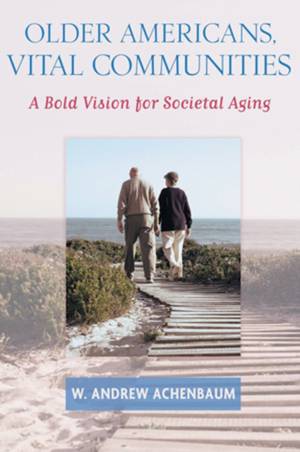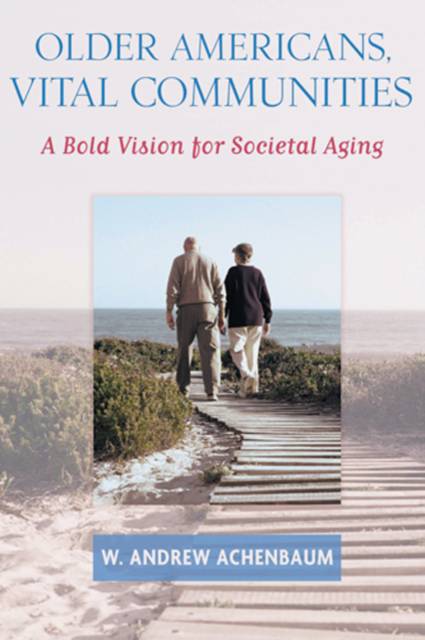
- Retrait gratuit dans votre magasin Club
- 7.000.000 titres dans notre catalogue
- Payer en toute sécurité
- Toujours un magasin près de chez vous
- Retrait gratuit dans votre magasin Club
- 7.000.0000 titres dans notre catalogue
- Payer en toute sécurité
- Toujours un magasin près de chez vous
Older Americans, Vital Communities
A Bold Vision for Societal Aging
W Andrew AchenbaumDescription
This thought-provoking work grapples with the vast range of issues associated with the aging population and challenges people of all ages to think more boldly and more creatively about the relationship between older Americans and their communities.
W. Andrew Achenbaum begins by exploring the demographics of our aging society and its effect on employment and markets, education, health care, religion, and political action. Drawing on history, literature, and philosophy, Achenbaum focuses on the way health care and increases in life expectancy have transformed late life from a phase characterized by illness, frailty, and debility to one of vitality, productivity, and spirituality. He shows how this transformation of aging is beginning to be felt in programs and policies for aging persons, as communities focus more effort on lifelong learning and extensive civic engagement.
Concerned that his own undergraduate students are too focused on the immediate future, Achenbaum encourages young people to consider their place in life's social and chronological trajectory. He calls on baby boomers to create institutional structures that promote productive, vital growth for the common good, and he invites people of all ages to think more boldly about what they will do with the long lives ahead of them.
Spécifications
Parties prenantes
- Auteur(s) :
- Editeur:
Contenu
- Nombre de pages :
- 224
- Langue:
- Anglais
Caractéristiques
- EAN:
- 9780801887680
- Date de parution :
- 01-01-08
- Format:
- Livre broché
- Format numérique:
- Trade paperback (VS)
- Dimensions :
- 154 mm x 229 mm
- Poids :
- 326 g

Les avis
Nous publions uniquement les avis qui respectent les conditions requises. Consultez nos conditions pour les avis.






